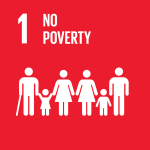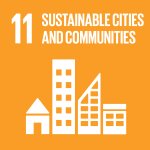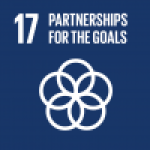
20 September 2024, Bujumbura – Burundi’s Ministry of Environment, Agriculture, and Livestock (MINEAGRIE) have launched a new initiative to increase the climate resilience of approximately 116,000 people living in and around the country’s economic capital and largest city, Bujumbura.
To be implemented with the support of the United Nations Development Programme (UNDP), the five-year project, worth US$10 million, combines advanced flood management, and the adoption of climate-resilient livelihoods with a strong emphasis on ecosystem-based adaptation solutions. It comes at a crucial time with communities in the area vulnerable to increasing threats from floods and landslides driven by climate change.
Burundi is one of the most densely populated countries in the world. Subsistence agriculture accounts for more than 90 percent of the labour force, more than a third of GDP, and provides 95 percent of the country’s food supply.
Rapid population growth is one of the main contributing factors to deforestation and land degradation. Meanwhile, climate change is driving increasingly frequent and intense droughts, floods, landslides, and more erratic rainfall.
Formulated with input from the government, NGOs, community organizations, development partners, and the private sector, the new project will:
- Restore more than 3,000 hectares of degraded land (through tree planting and agroforestry), with benefits for flood protection and agricultural productivity;
- Construct an additional 1,000 kilometres of anti-erosion ditches and terraces and 2.5 km of flood control infrastructure along the Ntahangwa river, which flows through Bujumbura;
- Expand the hydro-weather monitoring network in the Ntahangwa Basin, strengthening capacity to monitor and respond to climate threats;
- Support almost 20,000 (19,709) vulnerable households to take up alternative livelihoods and green entrepreneurship. This includes increasing access to micro-grants, micro-insurance and markets.
Welcoming the launch of the project, Minister of the Environment, Agriculture and Livestock Hon. Ir. Prosper Dodiko said, “This project will strengthen integrated watershed management and flood management of the Ntahangwa River linked to Bujumbura, ensuring and increasing the resilience of upstream highland communities and downstream lowland communities living in urban areas”.
UNDP's Resident Representative in Burundi a.i, Jonas Mfouatie, said, "This initiative is a vital move towards protecting the most vulnerable communities in Bujumbura from the escalating impacts of climate change. It puts forward win-win solutions for people and for the planet, developing communities’ resilience to climate change – at all levels of the watershed, urban, peri-urban, and rural – while also restoring the health of ecosystems on which people depend. Importantly, it will work closely with women, young people and Indigenous Peoples, unlocking entrepreneurship and employment opportunities.”
The project is co-financed by the Global Environment Facility-Least Developed Countries Fund and UNDP ($10 million) with a further $16 million from other partners.
For more information or media enquiries, please contact Aaron Nsavyimana, Communication Analyst, PNUD Burundi aaron.nsavyimana@undp.org




